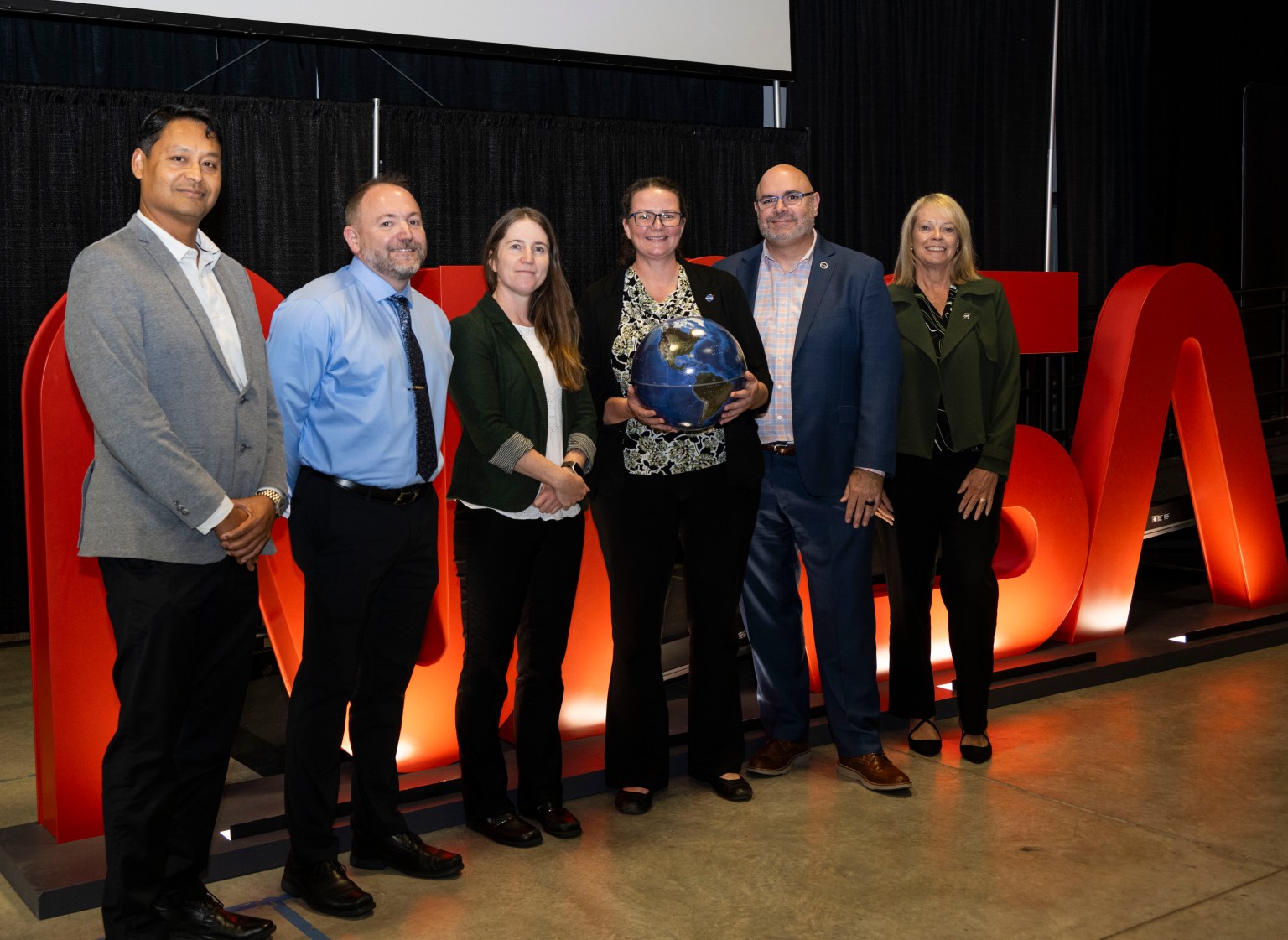
Marshall Welcomes NASA Chief Scientist for Climate, Science Town Hall
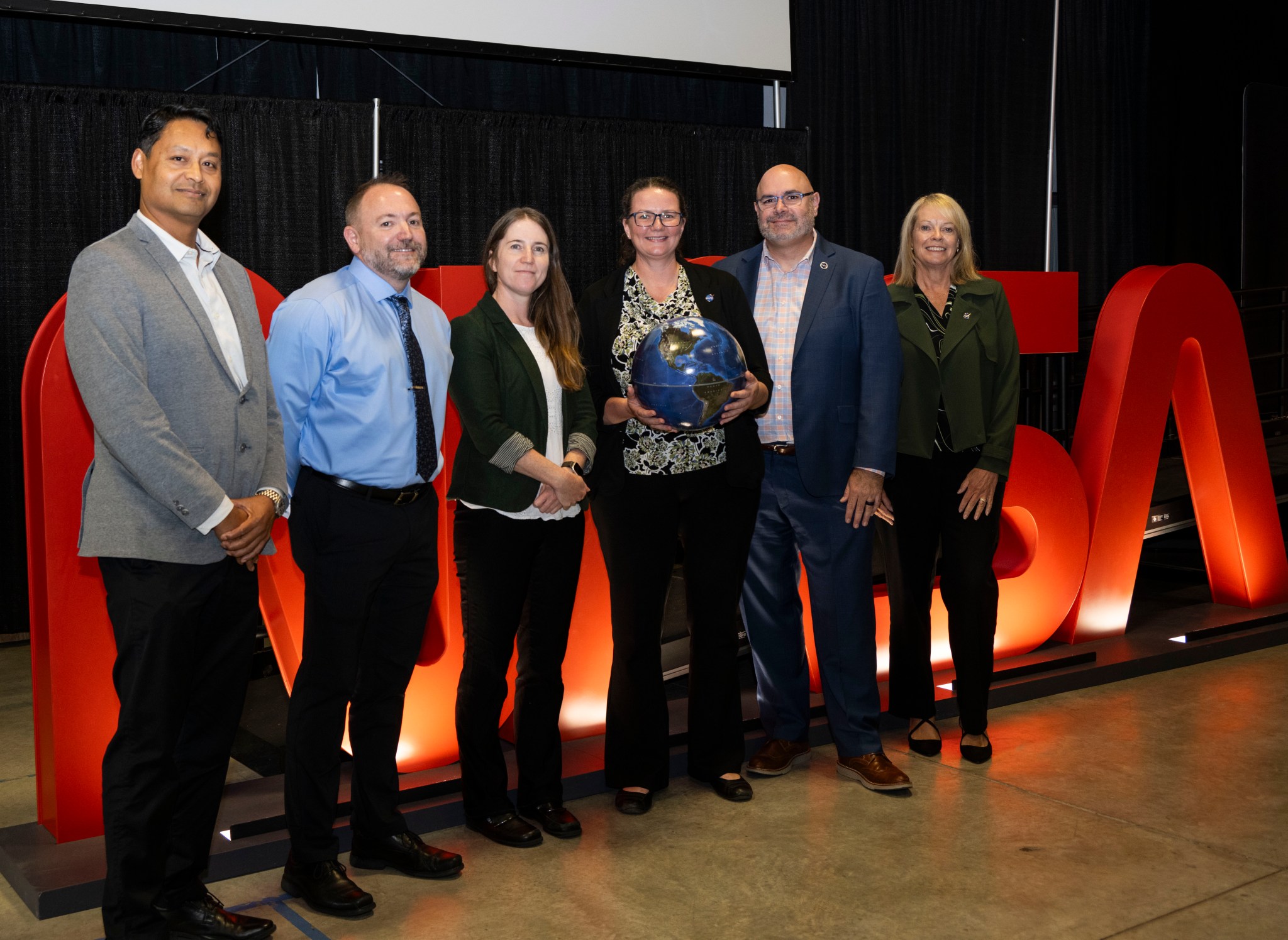
NASA Chief Scientist and Senior Climate Advisor Kate Calvin, center left, joins team members at the agency's Marshall Space Flight Center for a Climate and Science Town Hall on Sept. 17 in Activities Building 4316. Calvin took part in a question-and-answer session during her visit that was live streamed agencywide. Joining her in the session were, from left, Rahul Ramachandran, research scientist and senior data science strategist for the Science Research and Project Division at Marshall; Marshall Earth Science Branch Chief Andrew Molthan; Marshall Chief Scientist Renee Weber; Marshall Center Director Joseph Pelfrey; and Marshall Science and Technology Office Manager Julie Bassler, who moderated the panel. (NASA/Krisdon Manecke)
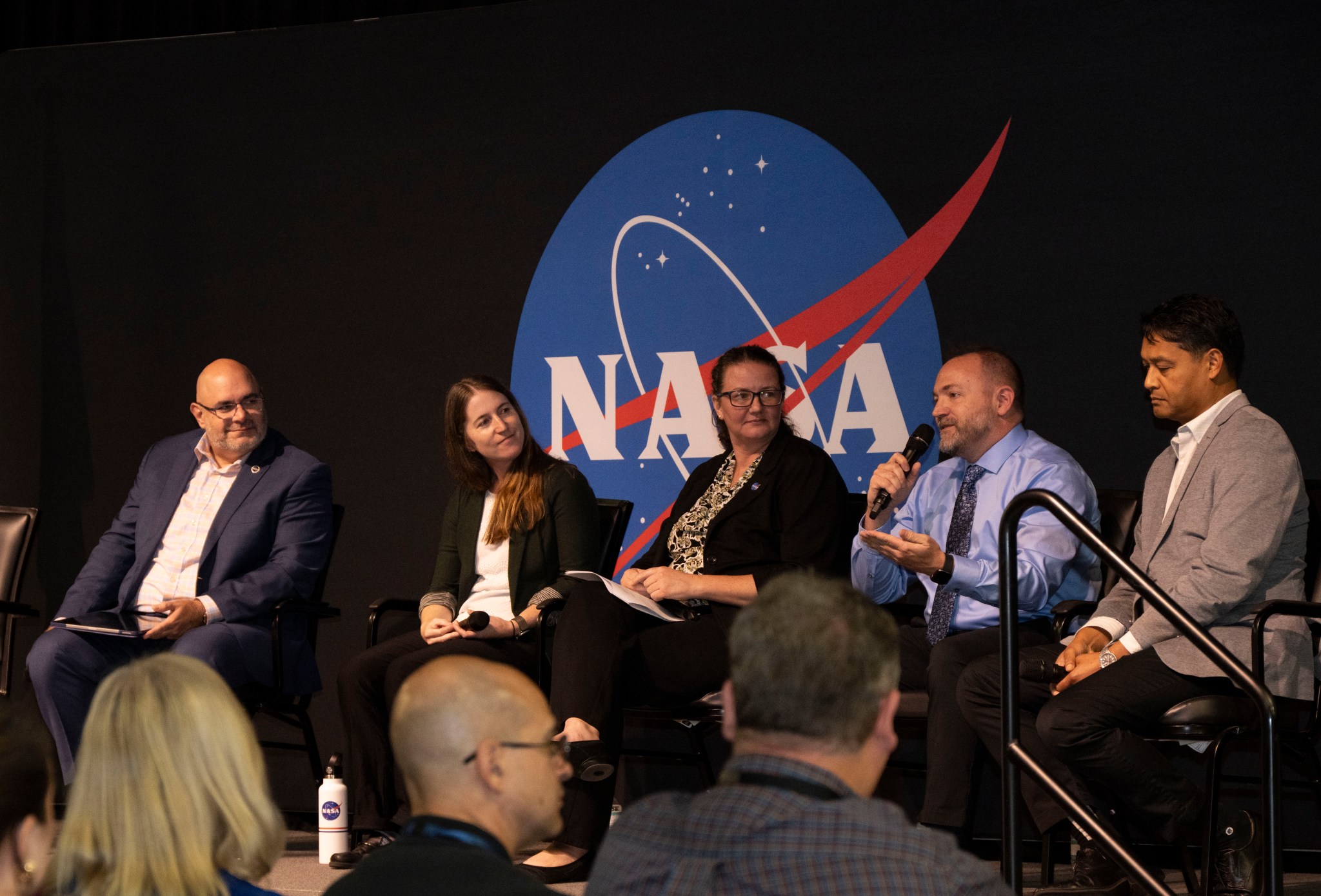
Molthan answers a question during the Climate Town Hall. Topics discussed during the town hall included the response by NASA and Marshall to climate change, the effects of climate change on NASA and Marshall objectives, and how NASA and Marshall are helping organizations around the world respond to climate change. (NASA/Krisdon Manecke)
Space Station Payload Operations Director at Marshall Carries on Family Legacy
By Celine Smith
Jacob Onken remembers his father, Jay Onken, waking him up one morning at 3 a.m. when he was 9 years old to watch the International Space Station fly overhead. At the time, his dad was a POD - a payload operations director - at NASA's Marshall Space Flight Center leading flight controllers who support science experiments aboard the orbiting laboratory 24 hours a day, 365 days a year.
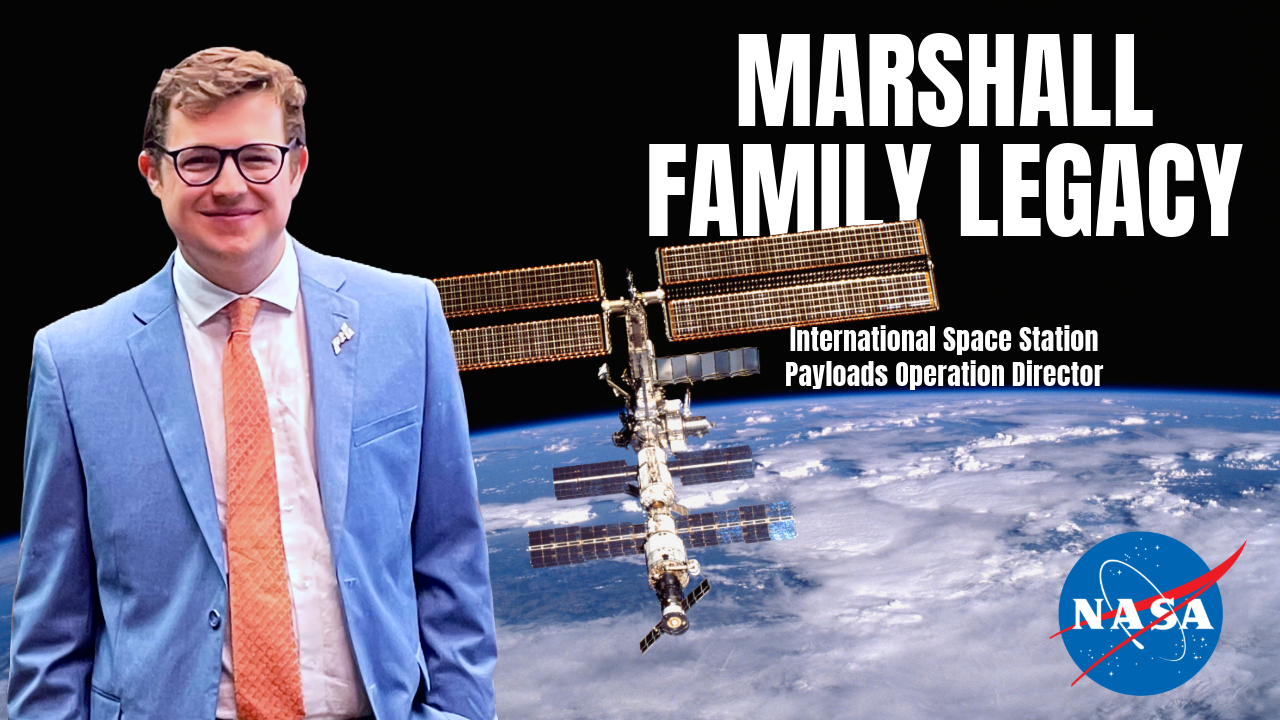
Now, the younger Onken has started a new chapter in his career as a POD at Marshall, following in his father's footsteps. The father and son are the first family members to serve in this role at Marshall. Onken said that happened by chance, despite growing up NASA-adjacent.
Jacob Onken began his aerospace career with an internship at Teledyne Brown Engineering while earning a bachelor's degree in computer science at Auburn University in Alabama. The internship took him to Marshall's Payload Operations Integration Center - a place his father had worked and often taken him when he was younger. Colleagues warmly remembered the veteran POD and welcomed to the role.
After graduating with a bachelor's degree in computer science in 2018, Onken worked as a contractor with Teledyne for NASA. As a data management coordinator (DMC) he sat console and learned to operate data and video systems aboard the space station.
"I really found myself out here, and I loved it," he said. "Working in space flight operations is insanely cool and beneficial to humanity."
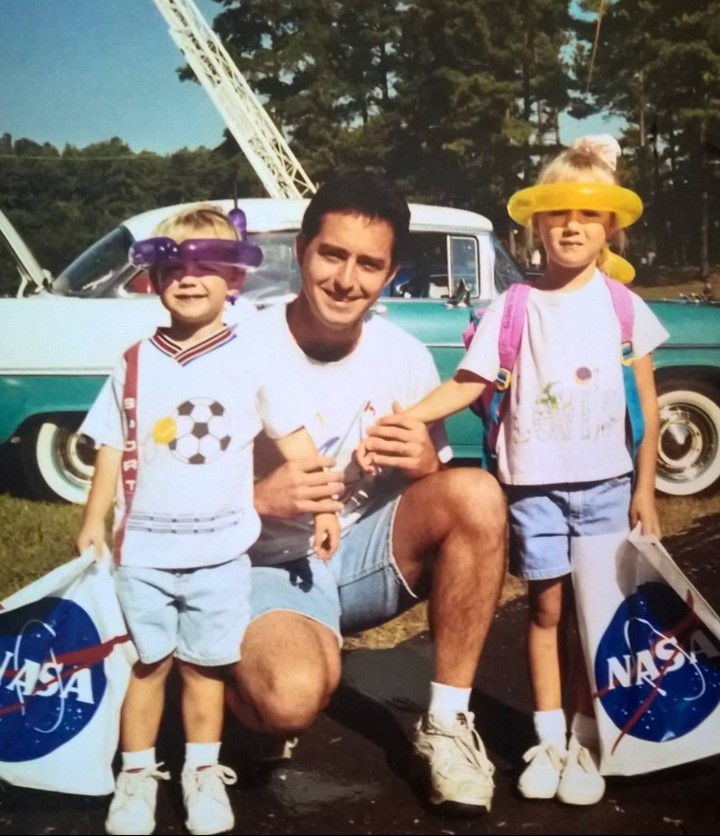
After training for over a year, he earned his DMC certification and later was assigned as the lead DMC for space station Expeditions 62 and 63. He later served as the DMC training lead, preparing new flight controllers for certification. In this role, he trained 13 DMCs for certification, using a people-based leadership approach he learned from his father.
Well before the space station flew, Jay Onken was an aerospace engineer whose early career assignments included orbit analysis for the space shuttle and attitude selection for several Spacelab missions. He later was one of the first flight directors for NASA's Chandra X-Ray Observatory, and following its launch, joined the first group of space station PODs.
He went on to become the director of Marshall's Mission Operations Laboratory in 2005, deputy chief engineer for the Space Launch System in 2014, and director of Marshall's Space Systems Department in 2016. He retired in 2018 and died in 2021 after battling cancer.
Jacob Onken continues Jay Onken's legacy. Colleagues say he embodies similar traits. He often reflects on his father's advice.
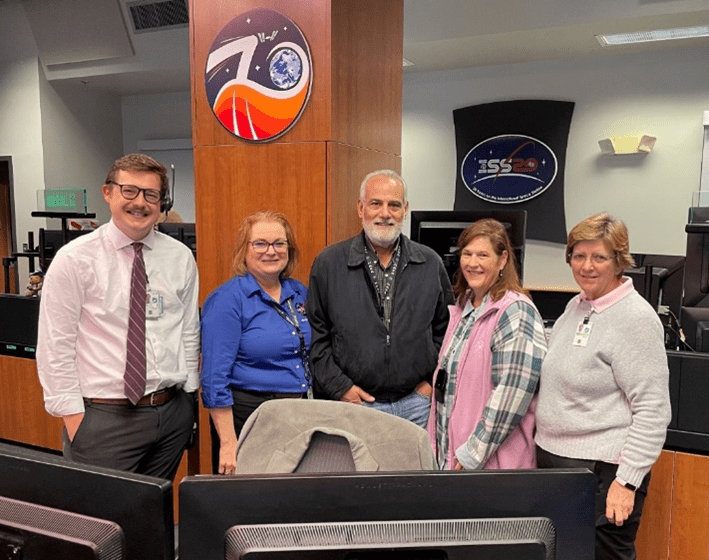
"I was lucky to have my dad, who understood the environment that I was working in," he said. "I knew his work meant a lot to him. We were always close, but we got even closer. Bonding over the same things was special."
In 2022, Onken became the DMC flight operations lead, supporting real-time console and planning operations for that team. In 2023, he joined the Operations Directors Office. After another rigorous training curriculum, he completed his POD certification in January 2024.
"It's rewarding and heartwarming to know that the future of space flight operations is in good hands with the new generation," said Craig Cruzen, the POD training lead who oversaw Onken's instruction and certification.
Onken leads a team that communicates with astronauts about the scientific experiments they're performing on the space station and ensures their safety from the ground.
"My role requires teamwork, trust, and communication," he said. "I ask myself, 'How can we work together effectively to get the job done?'"
While he holds the same position his father held, the space station has evolved, becoming a convergence of science, technology, and innovation. "Jay Onken was a POD when the International Space Station was just beginning," said former POD Carrie Olsen, now manager of NASA's Next Gen STEM K-12 education project and a family friend to the Onkens. "The challenge the space station faced back then was its newness," Olsen explained. "We were still figuring out how to best work with Johnson Space Center, scientists around the world, international partners, and the space station program."
Though Marshall had a rich operations history working programs like Apollo, Space Shuttle, Skylab, and Chandra, the space station was truly unlike anything that had come before.
"Jay's leadership qualities and integrity helped to build trust across the organization and the agency. This allowed Marshall's operations team to excel and be recognized as the premier space station science operations center across the globe," said his former colleague Sam Digesu, currently technical manager of the Payload and Mission Operations Division. "Jacob is on the that same path."
Jacob Onken says one of his career goals is to support payload operations on the lunar surface for the Artemis missions. "My dad was around when it started, and hopefully, I'm around to see it through."
NASA Hosts Observe the Moon Night at U.S. Space & Rocket Center
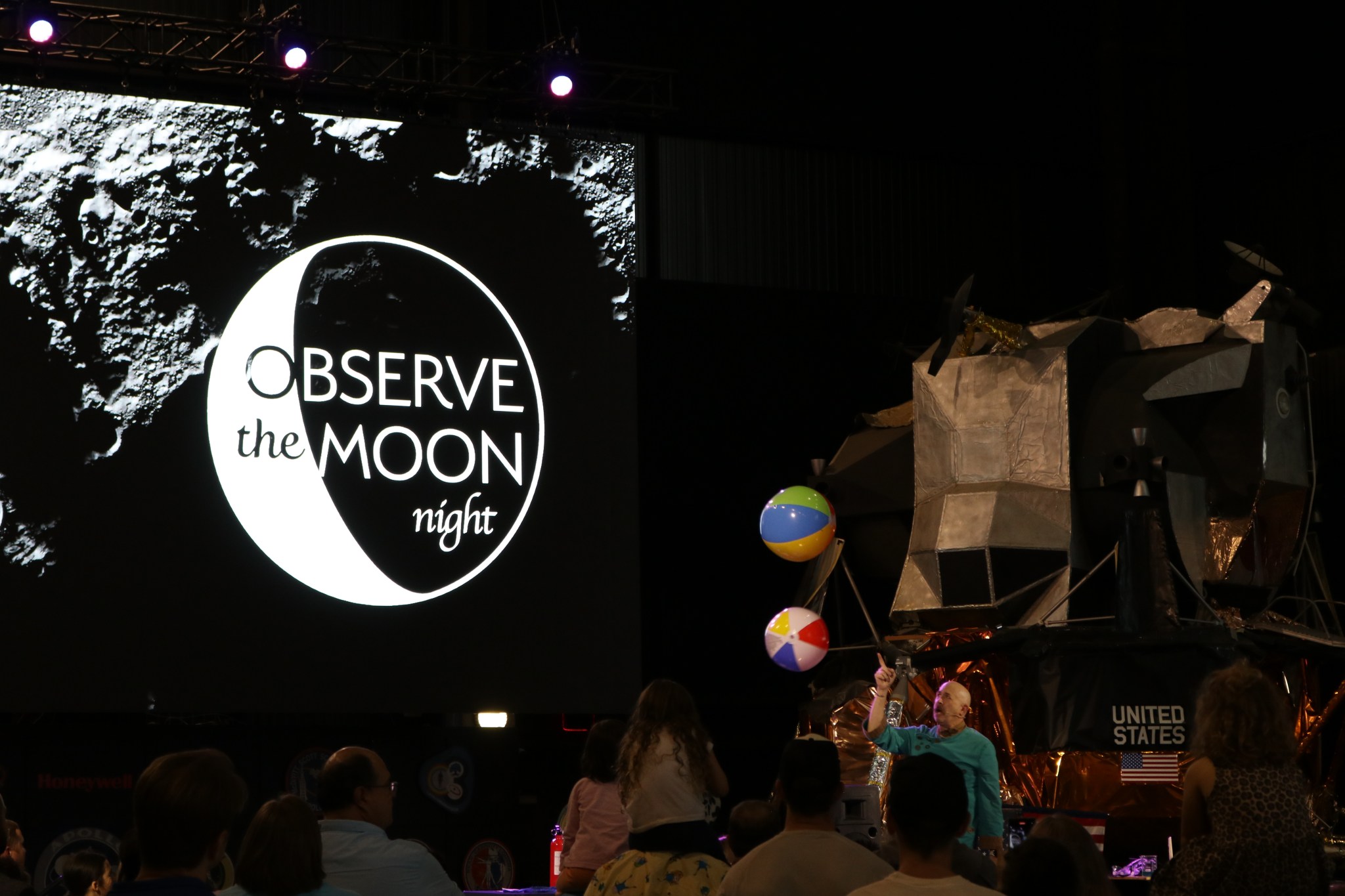
The Science Wizard, David Hagerman, right center, entertains the crowd with one of his shows Sept. 14 during Observe the Moon Night at the U.S. Space & Rocket Center in Huntsville. The free public event was part of International Observe the Moon Night, a worldwide celebration encouraging observation, appreciation, and understanding of the Moon and its connection to NASA exploration and discovery. NASA's Planetary Missions Program Office hosted the event at the rocket center. The Planetary Missions Program Office is located at NASA's Marshall Space Flight Center. (NASA/Lane Figueroa)
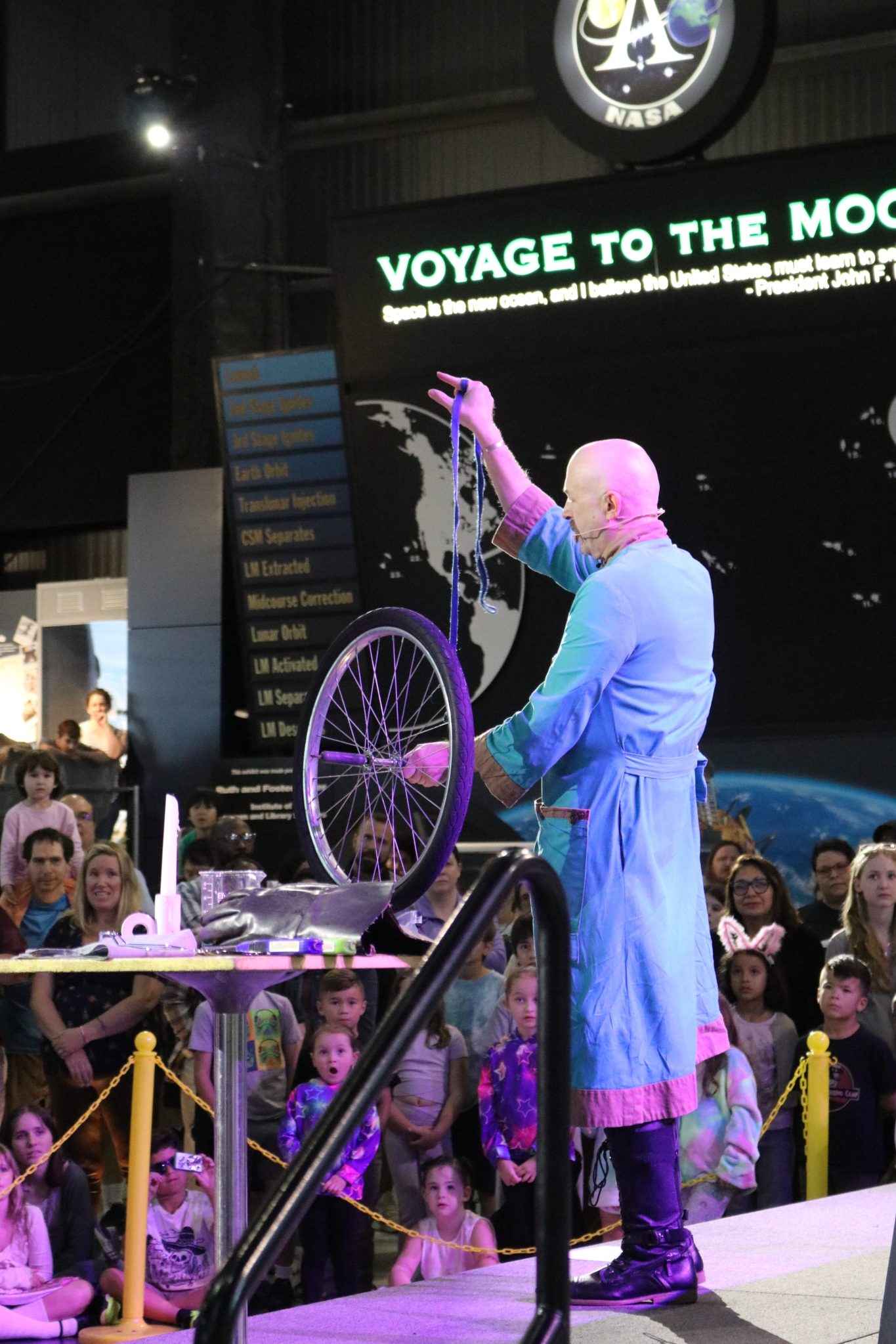
Audience members react during one of Hagerman's demonstrations at Observe the Moon Night. (NASA/Lane Figueroa)
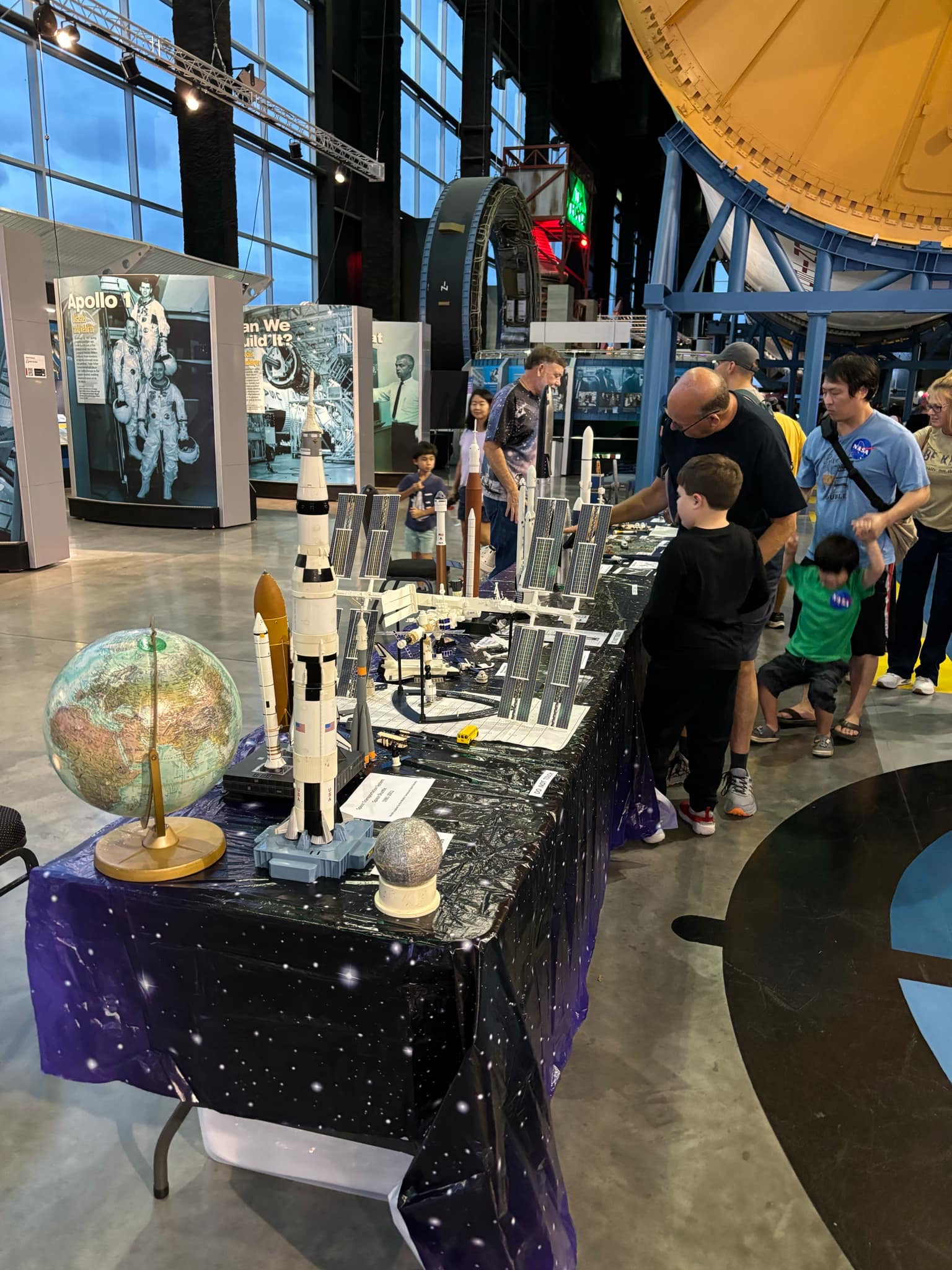
Attendees visit a NASA display during the Observe the Moon Night event. (NASA/Daniel Horton)
'Legacy of the Invisible' Event to Celebrate Marshall's Contributions to Astrophysics
The public is invited to join NASA's Marshall Space Flight Center for a special celebration of art and astronomy in downtown Huntsville on Sept. 20 from 6 to 8 p.m. The event will include a dedication of Huntsville's newest art installation, "No Straight Lines," by local artist Float.
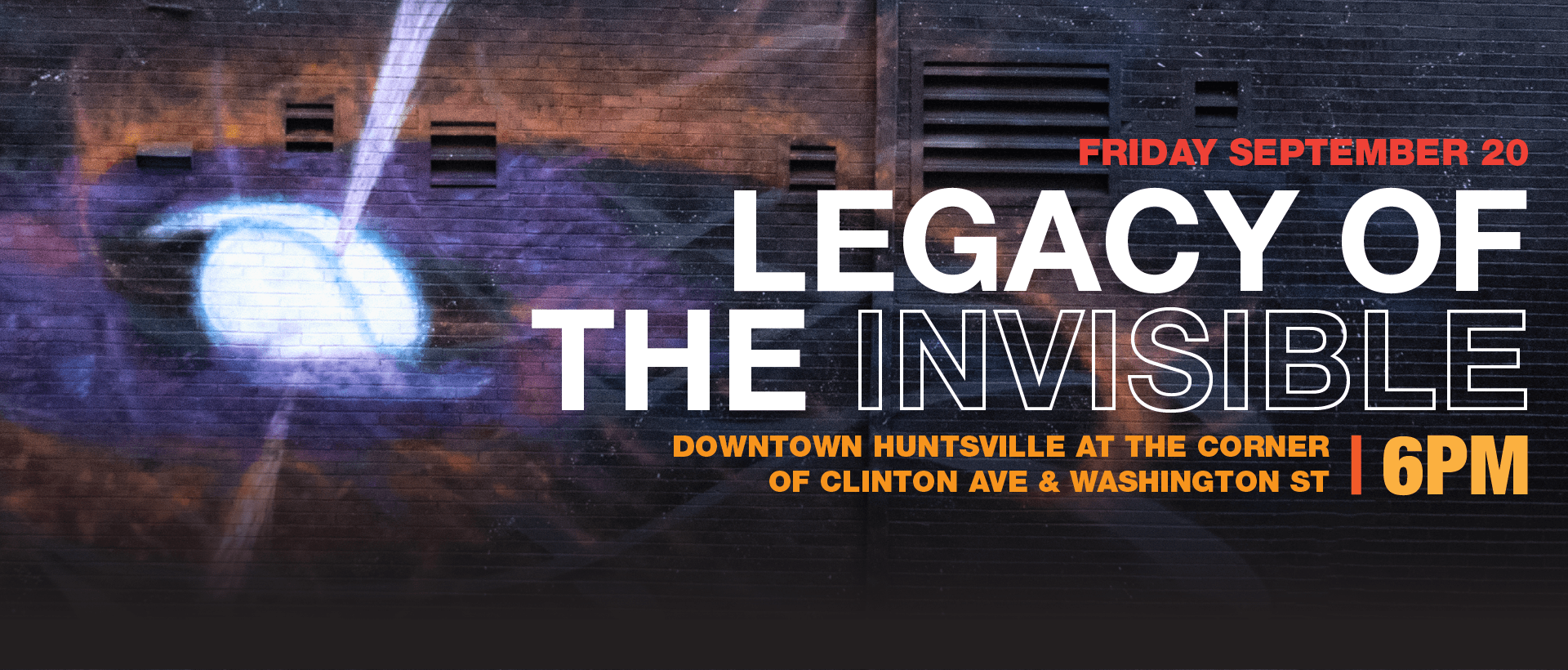
The celebratory event, "Legacy of the Invisible," will take place at the corner of Clinton Avenue and Washington Street, coinciding with the 25th anniversary of NASA's Chandra X-ray Observatory. Attendees will have a chance to meet and hear from NASA experts, as well as meet Float, the artist behind "No Straight Lines," which aims to honor Huntsville's rich scientific legacy in astrophysics and highlight the groundbreaking discoveries made possible by Huntsville scientists and engineers.
Enjoy live music, art vendors, food, and more.






